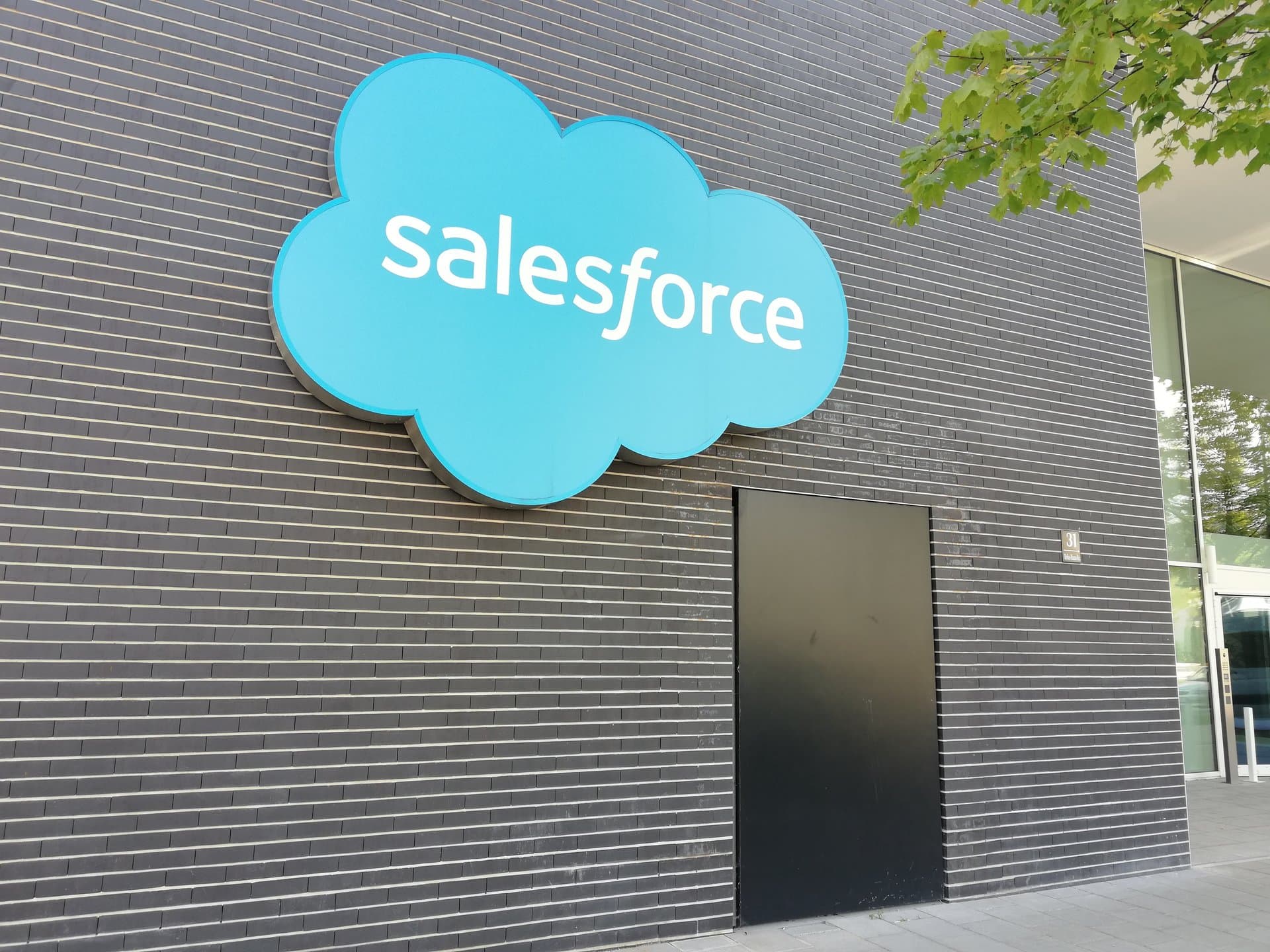Salesforce CEO Benioff Reveals AI Innovation Outpaces Adoption
Explore how Salesforce’s AI breakthroughs, led by Marc Benioff, highlight the widening gap between rapid AI innovation and slower enterprise adoption, reshaping business tech strategies today.

Key Takeaways
- Salesforce’s AI innovation is outpacing customer adoption significantly
- Only about 12,000 of 150,000 customers fully use Salesforce’s agentic AI
- Agentforce 360 is central to Salesforce’s AI strategy and product suite
- Complex integration and organizational change slow AI adoption
- Early adopters like PepsiCo and Reddit show strong efficiency gains

Imagine a world where AI tools evolve faster than businesses can embrace them. That’s the reality Salesforce CEO Marc Benioff painted at Dreamforce 2025. He revealed a striking truth: AI innovation is sprinting ahead, while customer adoption lags behind.
Salesforce’s Agentforce 360 platform and Slack’s transformation into a conversational operating system showcase cutting-edge AI capabilities. Yet, only a fraction of Salesforce’s vast customer base has fully integrated these tools.
This article dives into the innovation-adoption gap, why it exists, and how Salesforce’s vision of the “agentic enterprise” aims to bridge it. Let’s unpack what this means for businesses navigating the AI revolution today.
Understanding the Innovation-Adoption Gap
Salesforce CEO Marc Benioff’s statement that AI innovation is “far exceeding” customer adoption captures a critical challenge. Imagine a race where the technology is the sprinter, and the businesses are still tying their shoes.
Salesforce has rapidly expanded its AI capabilities, especially with Agentforce 360, which integrates AI agents into core business functions like marketing, sales, and customer service. Yet, fewer than 10% of Salesforce’s 150,000 customers have fully adopted these solutions. That’s about 12,000 enterprises navigating this new AI terrain.
Why the lag? Benioff points to the massive architectural changes companies must undertake. It’s not just flipping a switch; it’s rewiring entire systems. This gap isn’t unique to Salesforce—it’s a snapshot of the broader enterprise AI landscape where innovation outpaces real-world use.
Navigating Complex Integration Challenges
Deploying AI in an enterprise isn’t like adding a new app to your phone. It demands secure data integration, ethical governance, and a flexible platform that fits existing workflows.
Benioff highlights that customers must modify massive architectures and systems to accommodate AI. This complexity creates friction. It’s like remodeling a house while living in it—disruptive and slow.
Julie Sweet, CEO of Accenture, nails it: enterprise AI means rewiring how work gets done, not just automating tasks. This deep transformation requires patience, planning, and a willingness to rethink old processes. No wonder adoption takes time.
Embracing the Agentic Enterprise Vision
Benioff’s vision of the “agentic enterprise” is where every employee partners with an AI assistant. Agentforce 360 is the heart of this vision, automating routine work and surfacing insights 24/7.
Slack, acquired by Salesforce in 2020, is being transformed into a conversational operating system. Imagine chatting with your AI assistant to manage workflows, search data, and automate tasks—all within Slack’s familiar interface.
Unlike piecemeal AI projects, Salesforce emphasizes a tightly integrated platform. This approach aims to build trust and embed AI deeply into business apps, making it a seamless part of daily work rather than an add-on.
Learning from Early Adopters’ Success
While broad adoption is still unfolding, early adopters showcase AI’s tangible benefits. Reddit reports Agentforce deflected 46% of support cases and cut response times by 84%, boosting advertiser satisfaction by 20%.
PepsiCo rolled out Agentforce to 1.5 million stores worldwide, claiming a 25-30% efficiency increase. Other frontrunners like Williams-Sonoma and Pandora highlight how agentic AI drives productivity and customer happiness.
These success stories are more than numbers—they’re proof that AI can transform operations when embraced fully. They light the path for others hesitant to take the plunge.
Bridging the Gap with Strategic Investment
Salesforce isn’t just talking the talk; it’s investing $15 billion in AI infrastructure, workforce development, and an AI Incubator Hub in San Francisco. This massive commitment aims to nurture talent and innovation.
Benioff claims Salesforce is the fastest in enterprise AI platform development, expecting a tipping point as technical and organizational barriers fall.
The company’s strategy focuses on moving away from DIY AI experiments toward unified, trustworthy platforms embedded in workflows. This shift is crucial to help customers cross the chasm from curiosity to full adoption, unlocking AI’s true business value.
Long Story Short
Marc Benioff’s candid insight exposes a core tension in enterprise tech: blazing AI innovation meets cautious, complex adoption. Salesforce’s Agentforce 360 platform leads the charge, but most customers are still figuring out how to weave AI into their massive systems. The journey from pilot projects to full-scale AI transformation demands more than tech—it requires culture shifts, trust, and clear success stories. Early adopters like PepsiCo and Reddit offer glimpses of AI’s promise, boosting efficiency and customer satisfaction. For businesses, the message is clear: AI’s future isn’t just about invention but about embracing change. Salesforce’s $15 billion AI investment and ecosystem development signal a tipping point ahead. The relief of AI-powered workflows and smarter decisions awaits those ready to cross the adoption chasm.